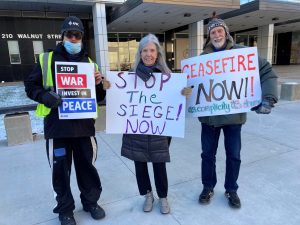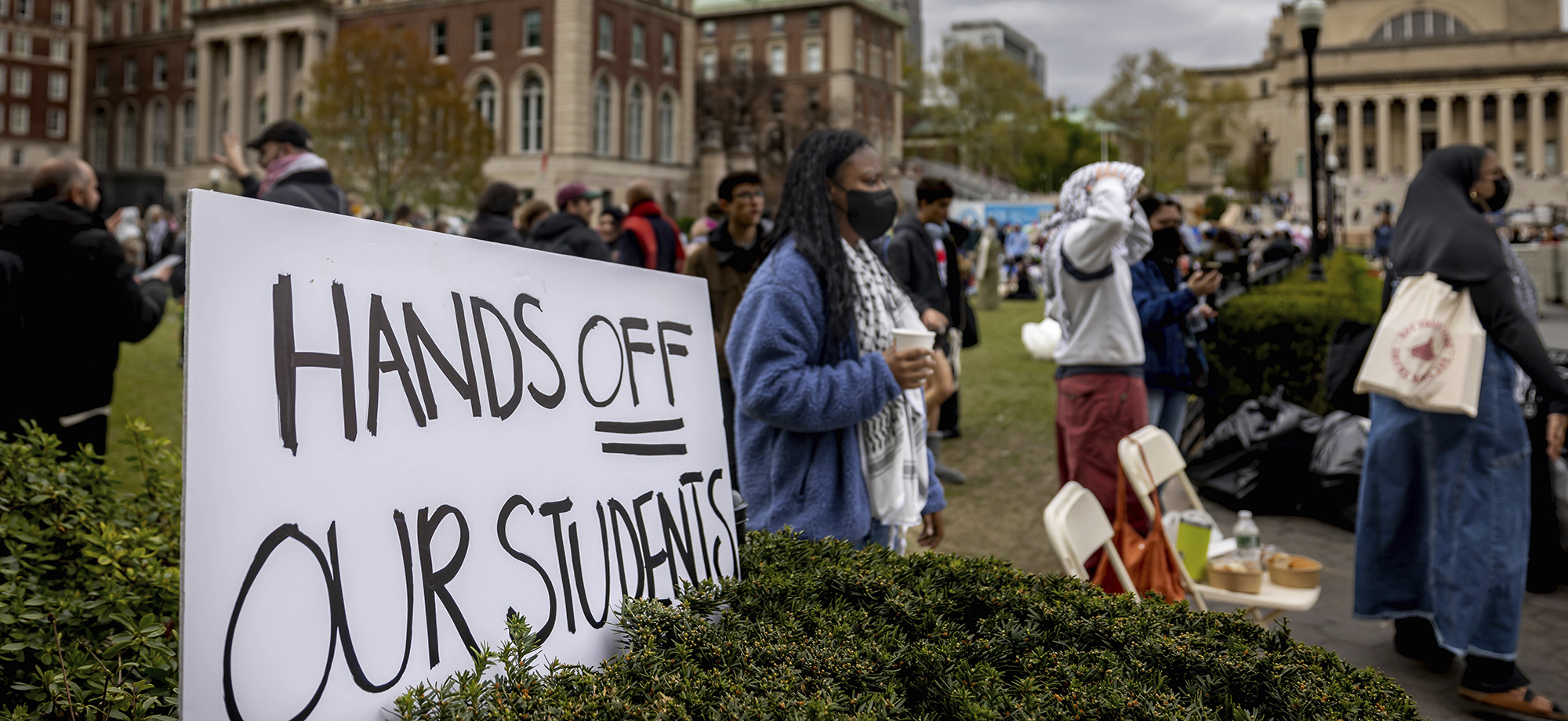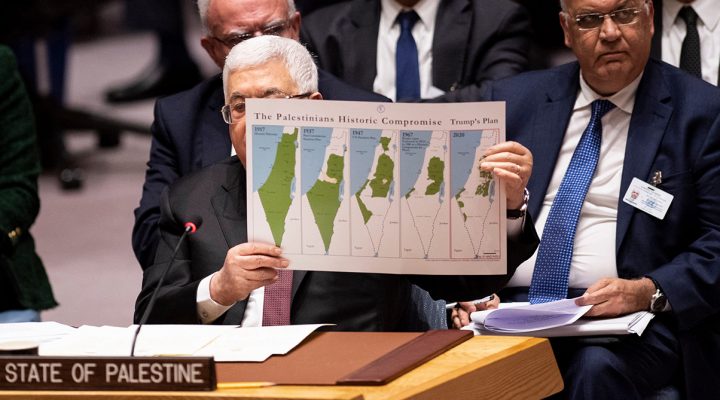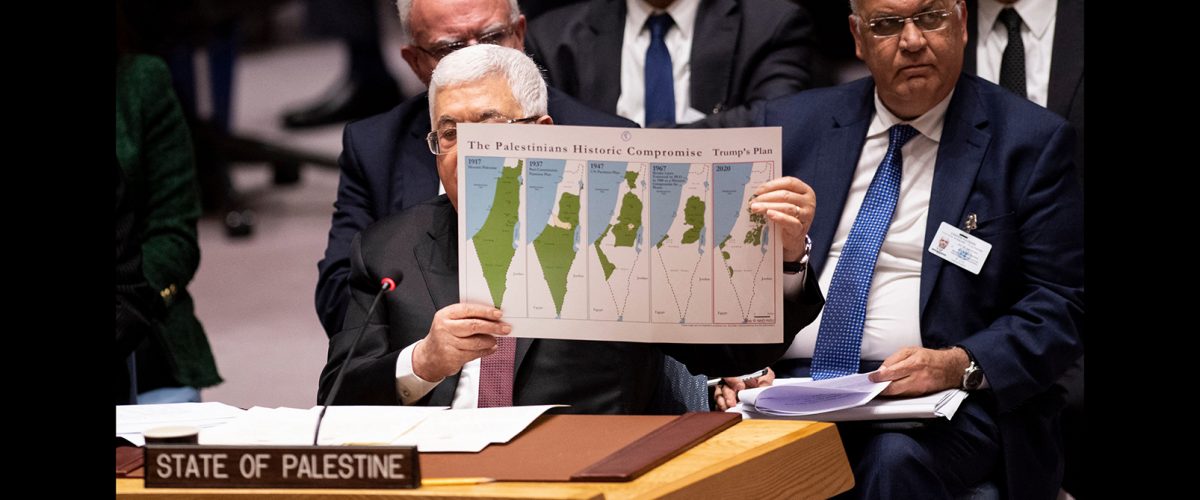In what may seem an exercise in futility, the Quakers have produced a peace proposal for Hamas and Israel.
I have great respect for the Quakers, starting with the influence they had on President Abraham Lincoln. I have been greatly inspired in my ministry by the extensive writings of Elton Trueblood. He spoke at my college graduation in 1974.

(Photo from American Friends Service Committee and Jon Krieg)
The Quakers have a long-standing presence in Gaza. According to the Peace Proposal, “The American Friends Service Committee established the first refugee camps in Gaza in 1949 and continues to work in Gaza, the West Bank and Israel today. Indeed, we have a long-standing presence in what is now Israel and dating back to the 1800s. Quakers established the Ramallah Friends Schools over 150 years ago, one of the first institutions to educate Palestinian women. Palestinian Quakers continue to worship at the historic Friends Meeting House in Ramallah.”
The Quakers have been part of the peace movement from the beginning. They are pacifists. I also am a pacifist, but people who know me have to hold me accountable. No group has invested more effort into peace than the Quakers. The opening sentence of their proposal sets the table for laudable and ideal results: “For centuries, Quakers have worked for peace.”
Figuring out how to make this work for Israel is not as easy as accepting a proposal by pacifists. Academically, working in the realm of abstract ideas, I am, as a pacifist, in agreement with the Quakers. Personally, I have deep reservations about what happens to Israel in a process that doesn’t lead to victory over Hamas. Perhaps no word describes the situation between Israel and Hamas as well as “precarious.”
Hamas as Hitler
Hamas’ stated goal of destroying Israel puts the organization squarely in Hitler territory. Kenneth Burke wrote Hitler’s Battle, “As everyone knows, (Hitler’s) policy was exemplified in his selection of an ‘international’ devil, the ‘international Jew.’”
“Hamas in its covenant swears to eliminate all Jews from the earth. Hamas is the most Hitler-like organization since Hitler.”
Hamas in its covenant swears to eliminate all Jews from the earth. Hamas is the most Hitler-like organization since Hitler.
The 1988 revision of the Hamas charter could not be more clear on this matter: “The Day of Judgment will not come about until Moslems fight the Jews (killing the Jews), when the Jew will hide behind stones and trees. The stones and trees will say, ‘O Moslems, O Abdulla, there is a Jew behind me, come and kill him.’”
Of all the comparisons made between Hitler and assorted politicians, no one fits the “Hitler” metaphor as completely as Hamas. They are not using Hitler rhetoric, Hitler propaganda techniques or Hitler fascism. They are espousing Hitler’s firm belief in the genocide of the Jewish people.

Students and pro-Palestinian activists gather inside the campus of Columbia University for a third day to protest the university’s stance on Israel on April 19, 2024, in New York City. The university’s administration requested the NYPD to clear out a pro-Palestinian campus demonstration on April 18 and arrested 100 students and protesters. (Photo by Michael Nigro/Sipa USA)(Sipa via AP Images)
American university students protesting against Israel
When I watch the young people protesting on university campuses, I applaud their courage even as I doubt they are willing to hear all sides of this complex argument. When rallies are pro-Hamas as if Hamas is something other than evil, I am perplexed.
Perhaps the college students will be co-opted by capitalism as the 1960s’ anti-war protesters (“hippies”) were. David Brooks remarks, “We saw this happen between the 1970s and the 1990s. American hippies built a genuinely Bohemian counterculture. But as they got older, they wanted to succeed. They brought their Bohemian values into the market, but year by year those values got thinner and thinner and finally were nonexistent.”
Do students know Hamas built many of its most important military and strategic facilities under hospitals and schools? Its server farm, for example, was built under the offices of the U.N. relief agency in Gaza City, according to the Israeli military.
Do the protesters know money meant for Palestinian humanitarian aid has been spent to build the Hamas military machine?
Do the protesters know Israel has warned civilians when and where it is about to begin operations and published an online map showing which areas to leave? It has sent out millions of pamphlets, texts and recorded calls warning civilians of coming operations. It has conducted four-hour daily pauses to allow civilians to leave combat areas. It has dropped speakers that blast out instructions about when to leave and where to go. Some military analysts believe this has prolonged the war as Hamas soldiers leave the area in advance of the attacks.
“Do the protesters realize if this war ends with a large chunk of Hamas in place, it would be a long-term disaster for the region?”
Do the protesters realize if this war ends with a large chunk of Hamas in place, it would be a long-term disaster for the region? Victorious, Hamas would dominate whatever government is formed to govern Gaza. Hamas would rebuild its military to continue its efforts to exterminate the Jewish state, delivering on its promise to launch more and more attacks like that of Oct. 7. Israel would have to impose an even more severe blockade than the one that it imposed before, this time to keep out the steel, concrete and other materials Hamas uses to build tunnels and munitions, but that Gazans would need to rebuild their homes.
Self defense gone too far?
The common liberal opinion in the U.S. says Israel has the right to self-defense but also insists Israel has gone too far in the war in Gaza.
Keep in mind, Israelis don’t make a distinction between Hamas and Palestinians. More than 80% of West Bank Palestinians told pollsters they supported the Oct. 7 attack.
Israelis see the war through the lens of the Oct. 7 attack as many Americans now see the world through 9/11. How many Americans could not offer love to any Japanese after World War II? How many Americans still see 9/11 as the fault of all Muslims?
A Jewish friend’s perspective
I am writing on behalf of my lifelong and cherished friend, David Sofian, senior rabbi emeritus of Temple Israel, Dayton, Ohio. My hope is this explains the emotional proofs I offer and the commitment I have to Israel.
David and I served in Dayton for 12 years. I was lead pastor at First Baptist Church of Dayton, an ABC-USA church. Our congregations partnered in numerous social justice activities. My love for David and Simone determines my response to the Quaker Peace proposal.
I asked Sofian for his response to the Quaker peace proposal. He and Simone now live in Israel in a condo within range of missiles. They have a bomb shelter in their home.
Immediately after October 7, I emailed Sofian and he responded with the deep grief and anger he naturally felt: “If there was ever any doubt, Hamas has clearly demonstrated its intent and ability to carry it out. I believe Israel is justifiably determined to neutralize that threat. It isn’t going to be pretty in the coming days but, again sadly, I have to agree it is necessary. I would love to let my pacifist feelings rise to the fore but I just can’t at this point. I am just too sad, angry and feeling too connected to our friends (virtual family) and family in Israel for that. I don’t know if this helps since it isn’t coherent thinking, just honest feelings, which is all I truly have at this point.”
“A cease-fire would achieve little more than providing Hamas a chance to rearm.”
Orthodox Rabbi Shmuly Yanklowitz makes similar arguments when he says, “Those who make arguments (against Israel) appear unwilling to take a hard look at Hamas, its ideology and the atrocities it has perpetrated. If they were to do so, they would recognize that a ceasefire could only lead to greater peace if it were able to bring about a diplomatic process that would end in Hamas’ moderation or removal from power. However, Hamas’ long history of brutality, culminating in the events that took place on Oct. 7, prove that no such a thing is possible and that a ceasefire would achieve little more than providing Hamas a chance to rearm.”
A peace that allows Hamas to regroup, rearm and regain control in Gaza is not peace. Israel will not accept such a peace no matter how lofty its goals or how noble the efforts of the peacemakers. As Yanklowitz says, “We cannot impose a peace mentality upon a war reality. Israel could make every concession possible for Hamas, and Hamas would still seek our people’s destruction.”
Sofian reflects on how the war has been covered in the U.S.: “I am not convinced we have heard enough about the precarious position of Israel in this war. Israel didn’t start this war. Hamas is being seen as less than a terrorist organization. Until Hamas is defeated as a military and governing force in Gaza, the Quaker Peace Proposal remains nothing but nice words printed on paper. First the defeat of Hamas, then peace. Harsh? Perhaps, but it must be said. Israel is fighting for the survival of its nation and its people.”
As David Brooks asks, “What would you have Israel do to defend itself?”
Sofian continues: “It is all well and good to stake out a position of ‘give peace a chance.’ The problem is when the other side will only exploit it. The war could end the minute Hamas returns the hostages and stops fighting. There was a ceasefire until Hamas broke it on Oct. 7.”
Our American dualism doesn’t work in complex situations where multiple issues and many sides exist. We are so trained at right and wrong, good and bad that we tend to jump to conclusions.
In The Atlantic, Palestinian writer Ahmed Fouad Alkhatib says: “As soon as a ceasefire begins, what’s left of Hamas’ fighters and personnel will emerge from the tunnels, put back on their military uniforms and resume operations out in the open, especially in areas vacated by IDF ground units.”
Sofian: “I am not saying everything Israel has done is justifiable. Indeed, I am highly critical of the lack of humanitarian effort.”
“Yes, a person can be critical of the government of Israel, favor more humanitarian aid for Palestinians and still be on Israel’s side in the war.”
Yes, a person can be critical of the government of Israel, favor more humanitarian aid for Palestinians and still be on Israel’s side in the war.
Sofian: “I am highly critical of the Israel government, as you know. But the tone in the statement seems to want to place most of the blame for all this on Israel. Nowhere does it mention that Hamas has been only building a war infrastructure since it took over; that there are more than 500 miles of hardened tunnels under schools, hospitals and mosques from which Hamas conducts the war and holds the hostages that can only be taken out with collateral damage. Indeed, such collateral damage is the essence of Hamas’ war strategy.”
He continues: “The Quaker proposal doesn’t mention Hamas is a genocidal organization whose charter calls for the destruction of the Jewish state and Jewish lives. For them all of Israel is occupied territory and any means are acceptable to end that. Their actions on Oct. 7 proved that.”
Israel is fighting for its life.
Sofian asks, “How was Israel to proceed after Oct. 7? How is it to proceed now given that it is under attack not just by Hamas in the south, but by Houties, Hezbollah, groups in Syria and Iraq and as we saw the other night by Iran itself directly. Israelis feel they are in a war of survival — a feeling I easily understand when I’m being shot at with missiles while sitting in my apartment.”
Haviv Rettig Gur, senior analyst for The Times of Israel, asks “Is Netanyahu an obstacle to victory?” In this piece, he discusses how the world worries that Netanyahu won’t bring peace, while Israelis worry he won’t win the war.
Bad assumptions will not bring peace
The Quaker proposal for peace, the anti-Israel protest on American university campuses, and the Democratic opposition to Israel, make several assumptions I believe are on shaky ground.
The assumption of both sides accepting the legitimacy of the other’s existence is not feasible. Palestinian leaders have shown no inclination to devote their budgets to economic development because they are financing a genocidal holy war. The cause of peace will not be advanced by the withdrawal of Israel from Gaza.
The Quaker peace proposal assumes both sides will come to accept the legitimacy of the other’s existence; that Palestinian leaders will devote their budgets to economic development rather than a rearming of Hamas and a continuation of a genocidal holy war; that the cause of peace can only be advanced by Israel’s withdrawal from Palestinian territories; that Hamas can be contained until a negotiated settlement is achieved; that extremists on both sides will eventually be silenced and marginalized and the peacemakers will be able to do their work of making a lasting peace.
All these assumptions are precarious at best.
Recognizing the dependence in my work on emotional arguments — pathos — which hopefully have included rational, reasonable thoughts (Aristotle’s logos), I end with a story about one of the most memorable nights of my life — a Passover meal with David, Simone, their children, and grandchildren in their home in the Oregon District of Dayton, Ohio. We feasted, had more wine than a Baptist is allowed, prayed and sang an array of funny songs. I walked home through the streets of Dayton after that four-hour festival and thanked God for David and Simone Sofian.
Now, perhaps you will know why I couldn’t have written any other way.
Rodney W. Kennedy is a pastor and writer in New York state. He is the author of 10 books, including his latest, Good and Evil in the Garden of Democracy.
Related articles:
What is going on at America’s elite universities? | Opinion by Mark Wingfield
Netanyahu has turned Israel into an evil empire | Opinion by Mark Wingfield
Netanyahu’s got to go but so do other obstacles to Mideast peace | Opinion by Erich Bridges
The 1948 Deir Yassin massacre as a prequel to today’s war in Gaza | Opinion by Raouf J. Halaby


